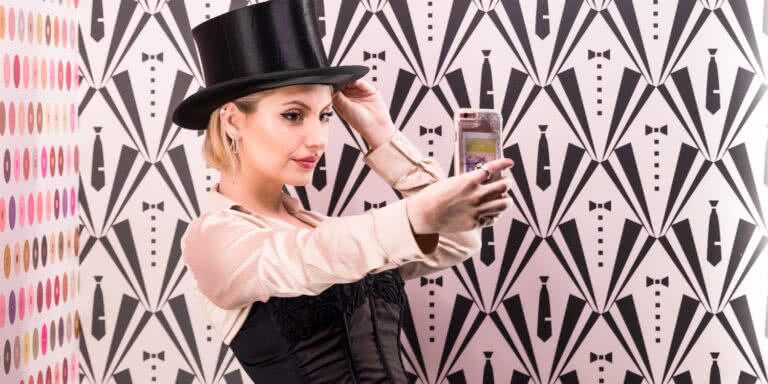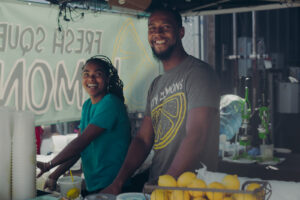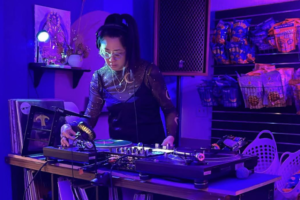Photography: Chris Weisler
After the Museum of Ice Cream opened its doors in New York in 2016, something shifted in the nature of Pop art. For a millennial audience, museum-going had become a means to bolster an Instagram feed. Millennials craved immersive experiences — they no longer wanted to be bystanders. They wanted vibrant, psychedelic pits filled with sprinkles to jump into. They wanted to take a photo on a swing made out of ice cream sandwiches and to pose atop a giant white unicorn. They wanted giant, life-sized gummy bears to amass more double taps on an Instagram photo.
Just two years later, these made-for-Instagram museums have popped up across the globe, glorifying the selfie in cult-like exhibits like Color Factory, Happy Place,The Egg House, and the aptly named Museum of Selfies. Art and Instagram have become inextricably linked.
And if you think about it, selfies have been around for as long as art has, from Rembrandt’s stark self-portraits to Cindy Sherman’s satirical self-photographs. Andy Warhol’s chromatic prints of Marilyn Monroe’s face have become the norm, replacing fine art with selfie culture.
Yet we’re also living at a time where #metoo is part of the national conversation. Where women are clamoring to have their voices heard above billboards of oversexualized, photoshopped women and are struggling to gain equal pay with their male counterparts in a society that remains intrinsically misogynistic.
Where then, does that leave us?
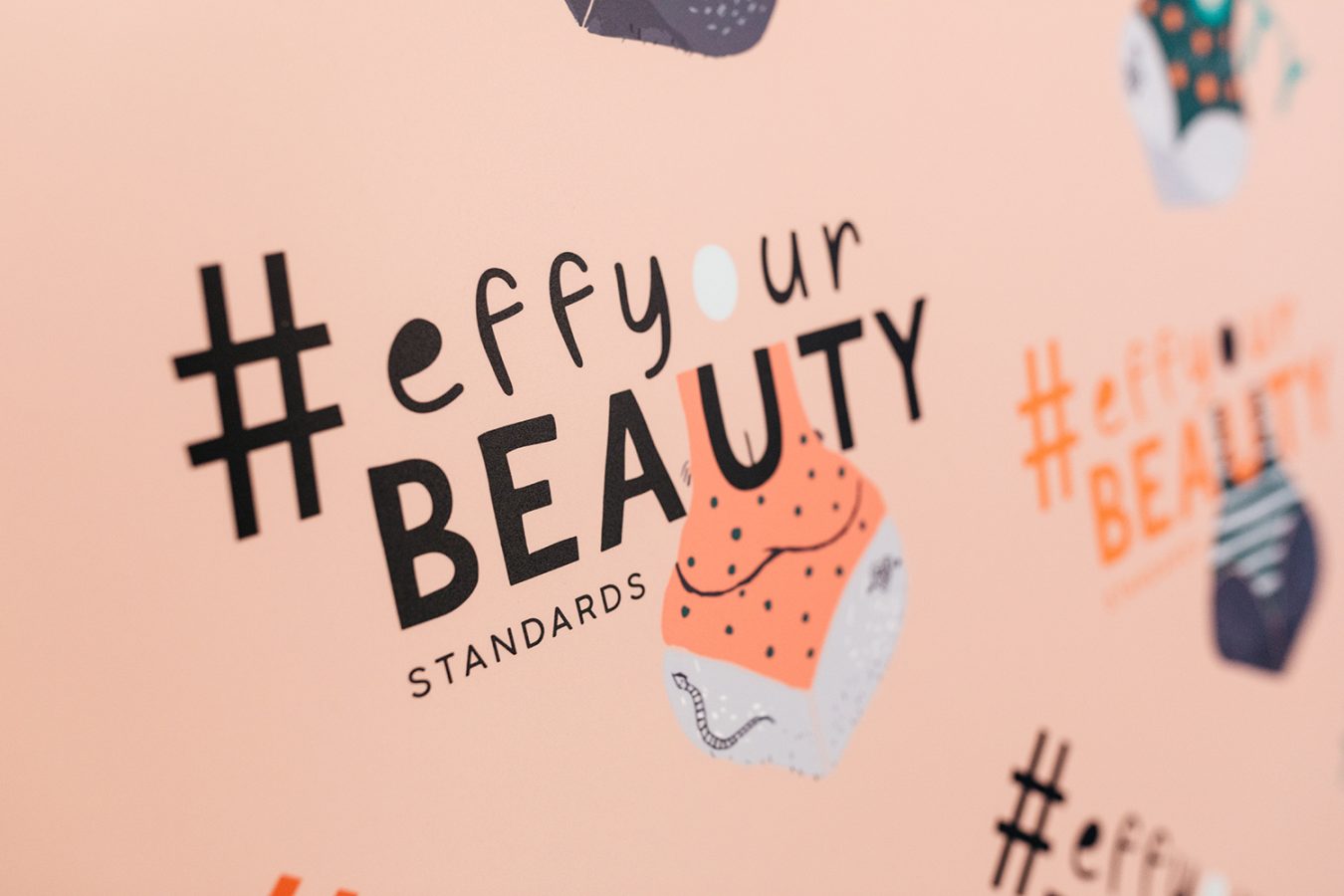
That Lady Thing is carving out a space that embraces the cultural desire for Instagram-ready, experiential installations, but also acknowledges and hopes to incite change on the subject of female inequality. A lofty task? Yes. But one that’s more worthy of acknowledgment than what a ripe avocado feels like at an avocado museum.
The five-day event, created by a group of predominantly female creatives at an agency called Eleven, is all about sharing images that tell stories of female empowerment. Initially designed as a one-night installation for International Women’s Day, the piece sparked a dialogue on social media that begged for more content. Women, press, and brands wanted to get involved. And so, the current iteration of That Lady Thing came to be, with its organizers crowdsourcing creative ideas from women designers and makers, and hoping to raise funds for organizations that support women in the workplace and beyond.
The organizers set out to address the issues of gender inequality prevalent today. “We didn’t start with the intent to build a selfie museum,” says creative director Jamie Shaw. “We started with the intent to express our displeasure and make an activist effort toward change.”
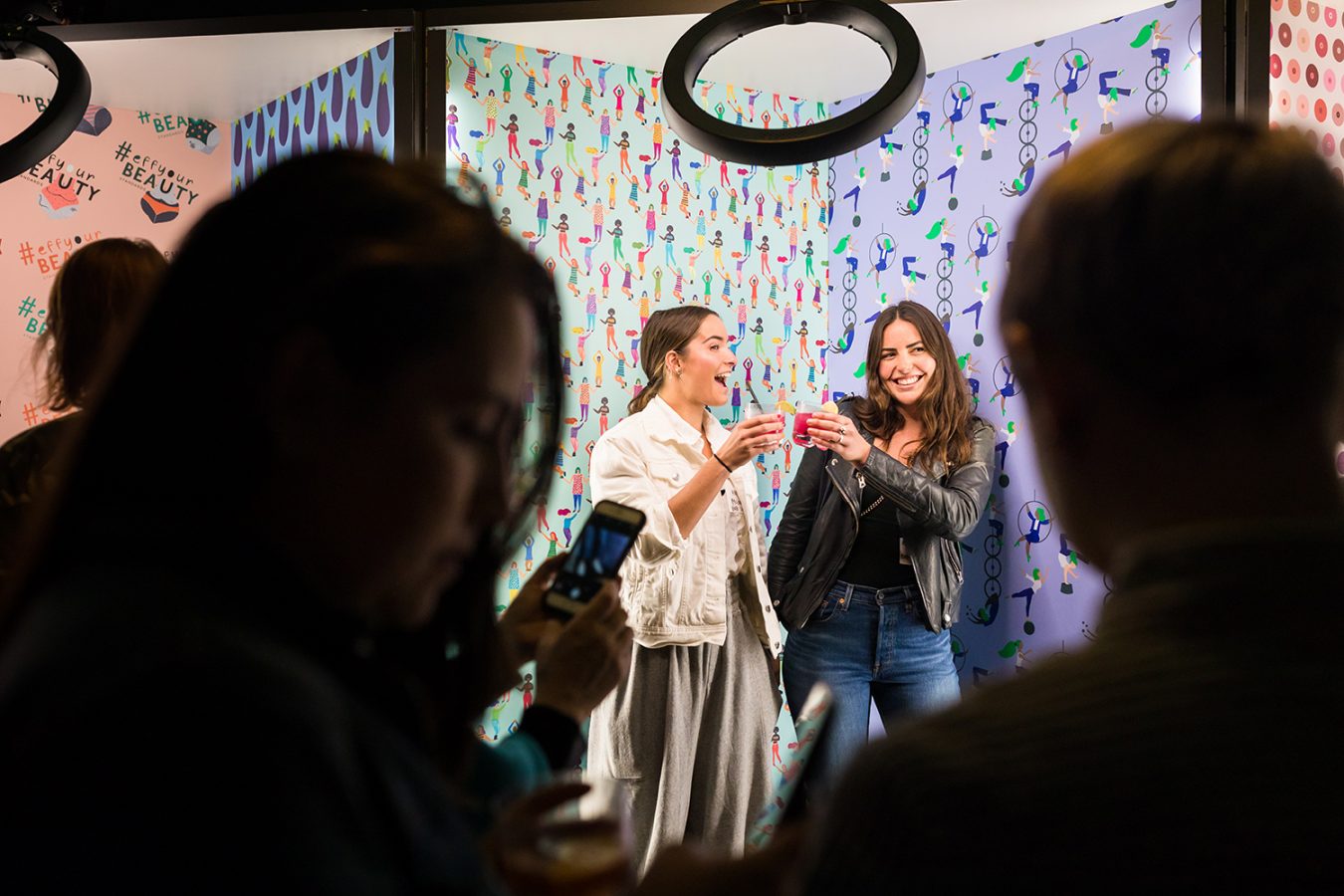
In a generation where the selfie reigns supreme, they found that immersing themselves in this ubiquitous phenomenon was the best way to make their voices heard. “It was our way of inserting a political conversation into an otherwise one-dimensional experience. So, our goal is to find ways to engage women with serious, substantive conversation about these issues, but to do it in a space and in a way that is inviting and optimistic and even celebratory.”
We’ve seen the marches, petitions, and speeches on the subject of gender inequality. We’ve read the articles and felt the outrage. But Jamie wants to take the issues of feminism out of the academic realm and make it available to everyday women to express their views outside of platforms like the Women’s March. “Why can’t we have that conversation in spaces other than classrooms and street protests? Why can’t we have it with friends, in bars, on Instagram?” She argues that That Lady Thing’s playful, relatable tone should be viewed as a strength, not a shortcoming. She’s claiming power in bringing a serious subject-matter into spaces that are inviting, magnetic, and shareable.
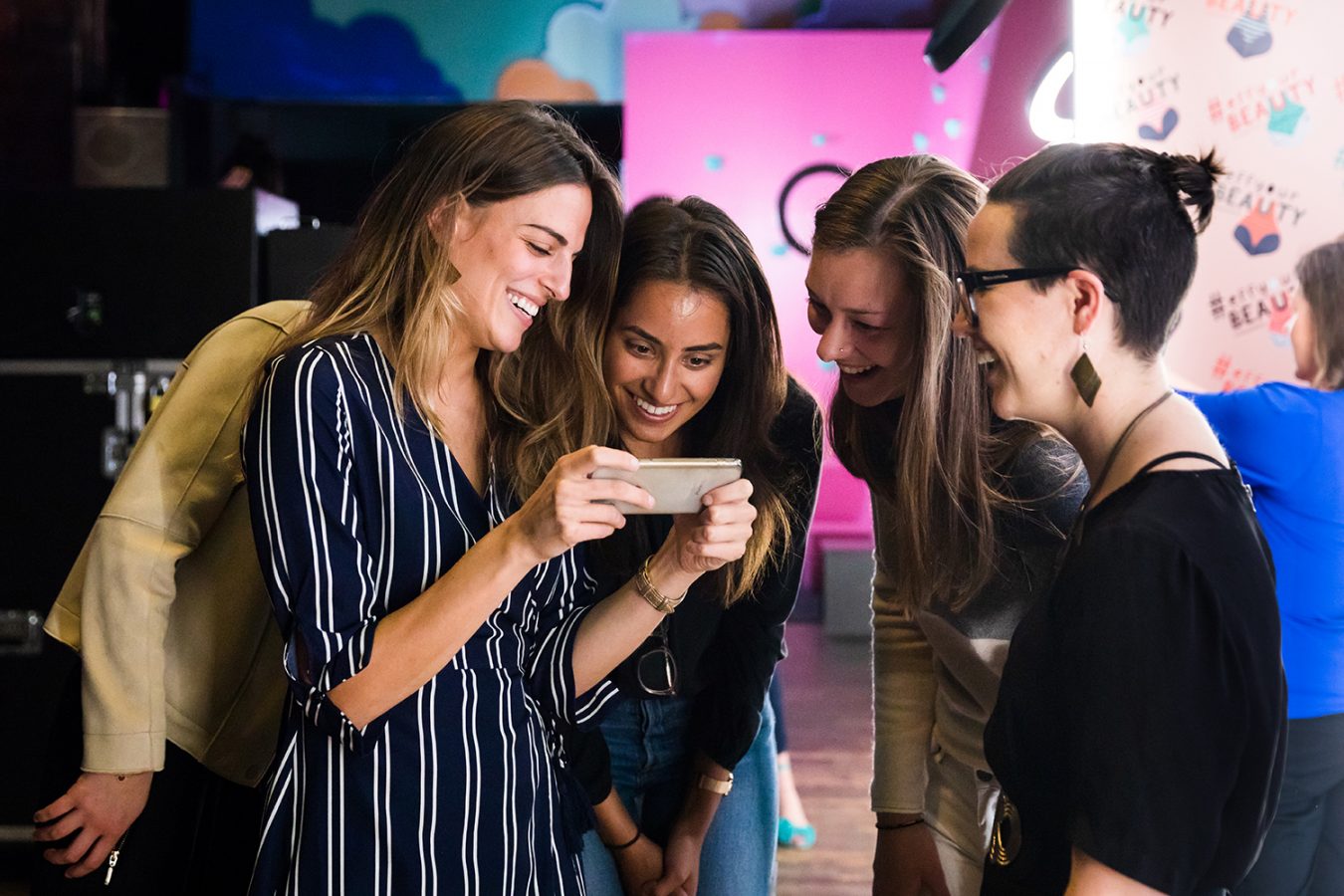 In 2017, millennials under the age of 25 spent more than 32 minutes a day on Instagram. The team at Eleven is utilizing the most popular social media platform to bring voice to an issue. “Ultimately our goal is to help make change, not only through consciousness-building and a fun, creative experience, but by really trying to grow this platform into something that can activate women onsite at the experience to want to give in ways that can really make change for women who need it most.”
In 2017, millennials under the age of 25 spent more than 32 minutes a day on Instagram. The team at Eleven is utilizing the most popular social media platform to bring voice to an issue. “Ultimately our goal is to help make change, not only through consciousness-building and a fun, creative experience, but by really trying to grow this platform into something that can activate women onsite at the experience to want to give in ways that can really make change for women who need it most.”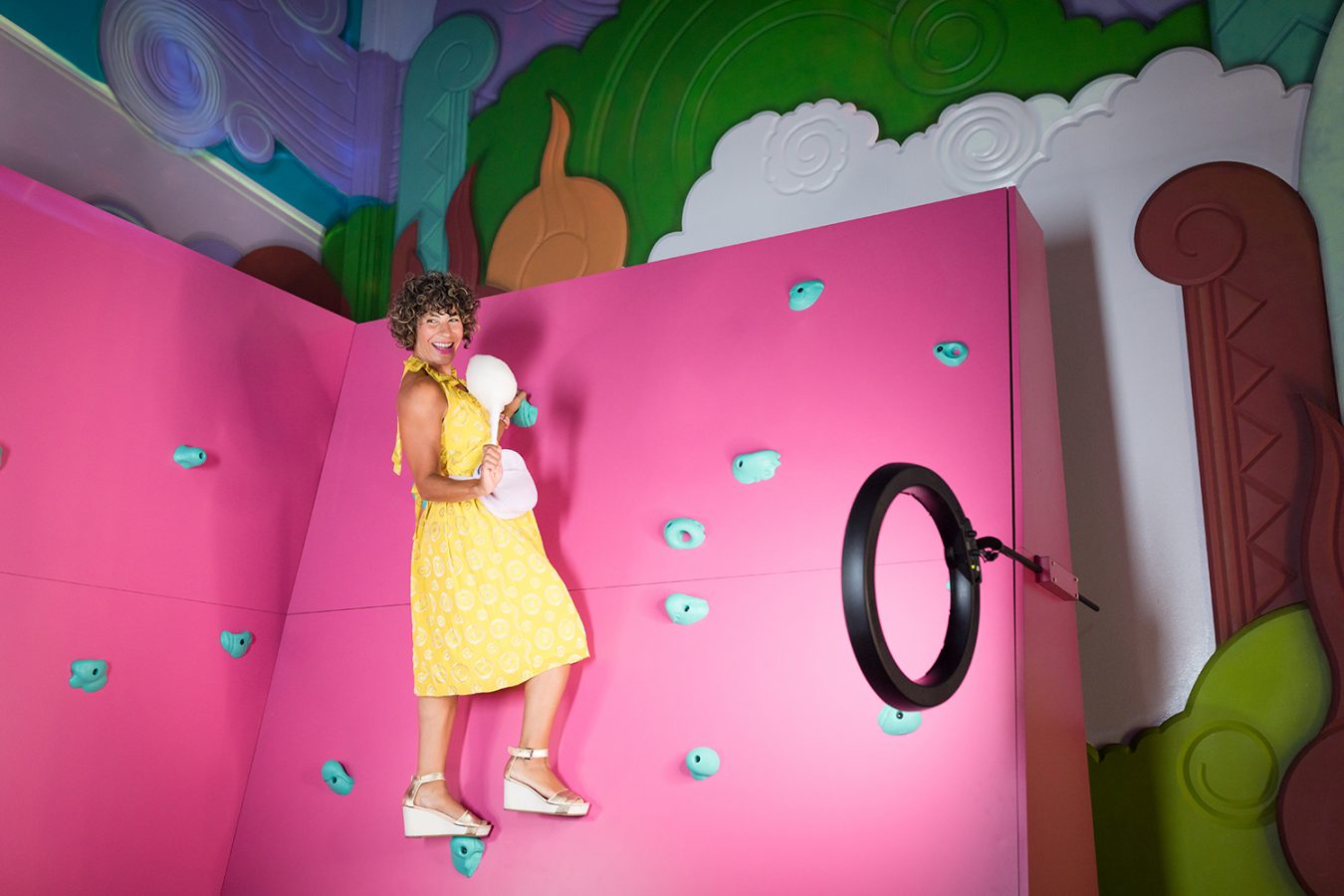
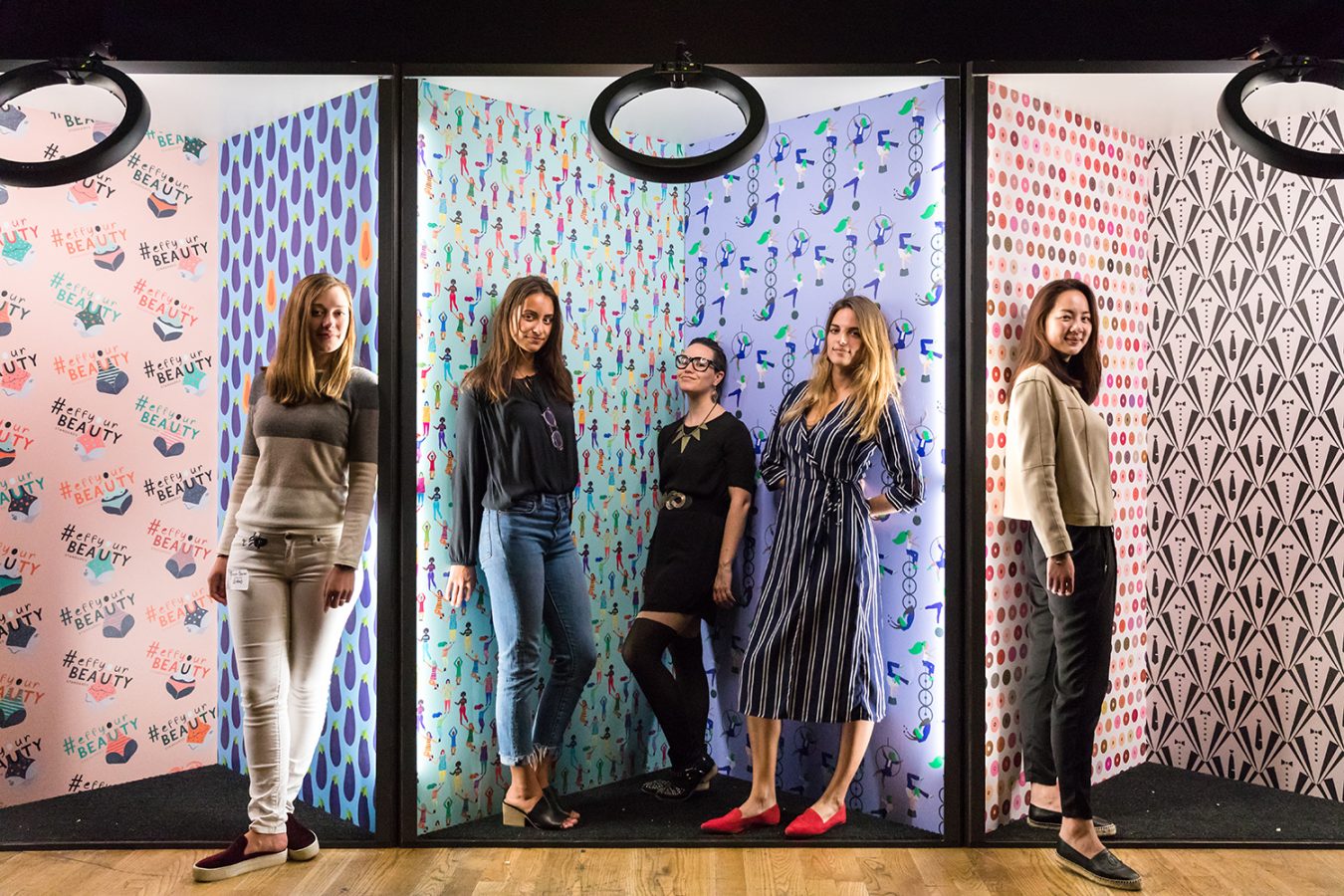
By developing a sharable lifestyle brand around feminism, Eleven believes they can activate women who might otherwise not be interested in engaging in political discourse. Raising awareness on an unexpected platform means they can potentially reach a broader audience while having fun with the idea of activism. Why not speak to this new generation of feminists on a medium that makes sense to them?
While Museum of Ice Cream has raked in over $6 million in revenue since its opening and 29Rooms offers free advertising to its lengthy list of sponsors (including Dunkin’ Donuts, Cadillac, and Dyson) whose images and brands are plastered floor to ceiling throughout the exhibit, That Lady Thing is donating all its profits as well as money from on-site donations and auctions to the National Women’s Law Center. Plus, its sponsors (Ellevest, Lyft, Carbon, EO Products, Benefit, and Pomp + Whimsy) are all engaged in some form of gendered activism that helps elevate women in the workplace and in the world.
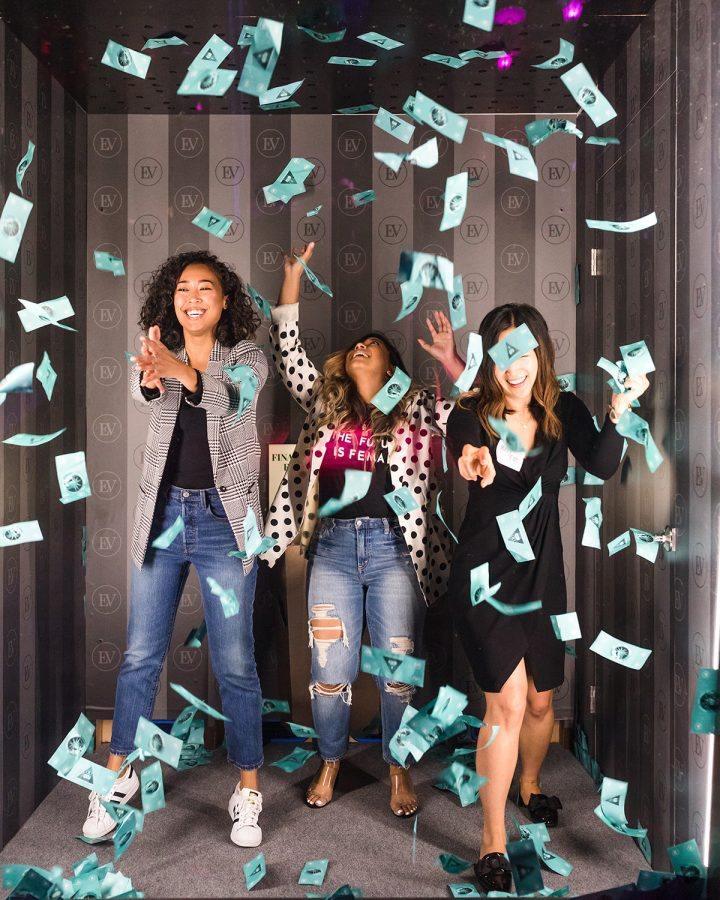 You won’t find these sponsors’ logos interspersed throughout the exhibits, either. What you will find are vignettes with a clearly feminist slant that reveal a societal problem around gender bias. You’ll find The Sea of Objectification, where you can jump headfirst into a ball pit filled with bulbous plastic breasts, a commentary on objectification. You’ll find the The Corporate Climb, where you have the chance to reach the same heights as your male counterparts. And you’ll find The Money Maker, a money booth where you can close the wage gap, the money gap, and the investment gap.
You won’t find these sponsors’ logos interspersed throughout the exhibits, either. What you will find are vignettes with a clearly feminist slant that reveal a societal problem around gender bias. You’ll find The Sea of Objectification, where you can jump headfirst into a ball pit filled with bulbous plastic breasts, a commentary on objectification. You’ll find the The Corporate Climb, where you have the chance to reach the same heights as your male counterparts. And you’ll find The Money Maker, a money booth where you can close the wage gap, the money gap, and the investment gap.Jamie seems to think society is reaching its limits on those candy-coated, kaleidoscopic pop-up selfie installations. “We are perfectly positioned to be the antidote to this sugary craze since our idea was and will continue to be a tongue-in-cheek take on these environments, embedding ours with activist messaging and a cause-based donation mechanism.” Instead of separating the political and activist self from the social, Jamie and her team want to introduce the protest conversation into a space that is meant for entertainment and is rooted in visual stimulation.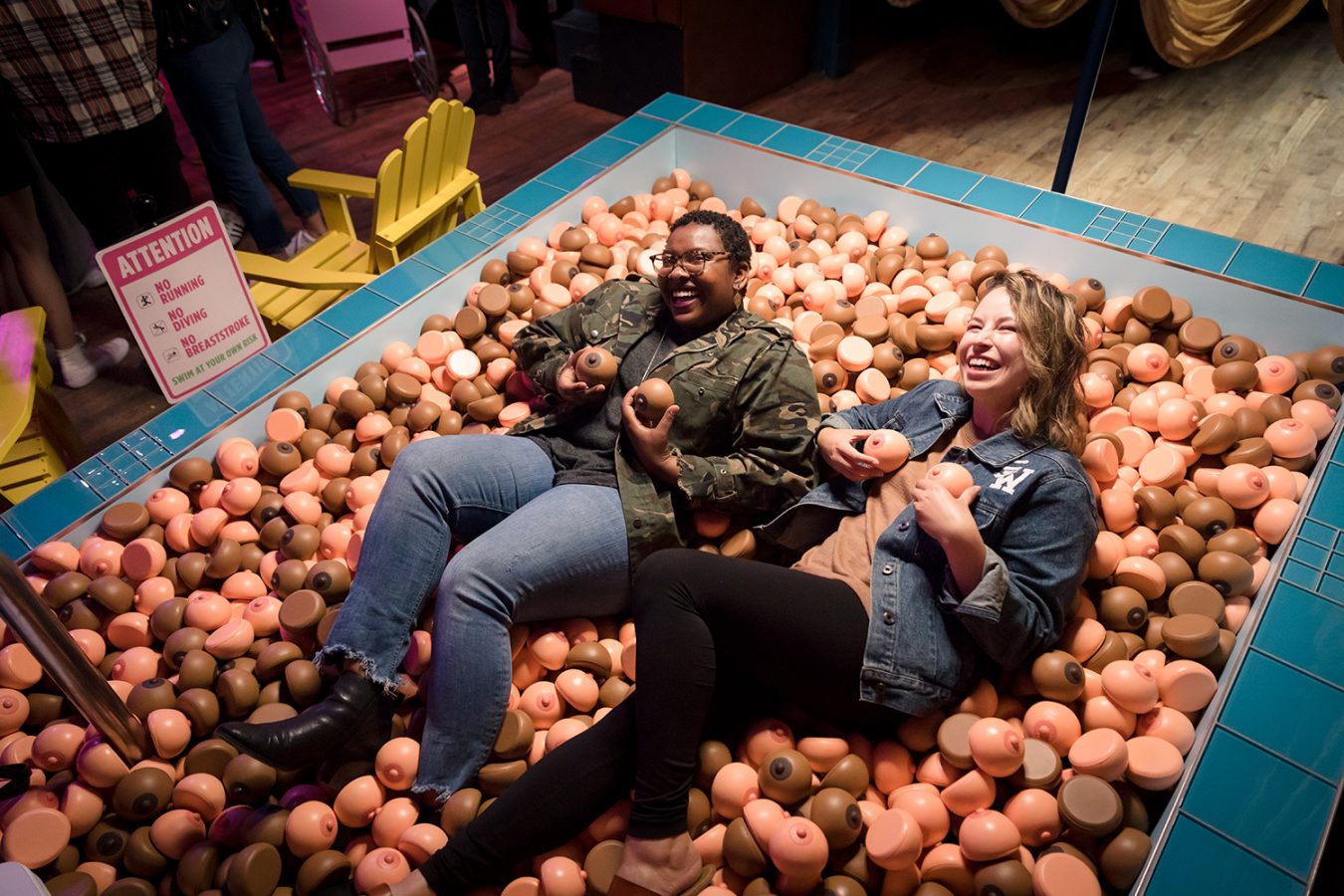
And walking through the exhibit, you’re definitely stimulated. Provocative imagery is meant to spark a dialogue between women both in the space and on social media. Wallpaper with silhouettes of women’s different shaped bodies reads “#effyourbeautystandards.” Other walls are papered with eggplant emojis, with a light peppering of papayas to reflect the disparate percentage of men to women in the workplace.
Cocktails are suggestively titled “Consensual Sex on the Beach,” “French 75¢ on the Dollar,” and “Nasty Mujer.” The lighting is sultry with pink accents that make it feel like a cabaret or burlesque. Everywhere you look, you’re reminded that being a woman in the workplace is a constant struggle — that we live in a patriarchal society where we can only hope to make it halfway to the place men inhabit today. For now.
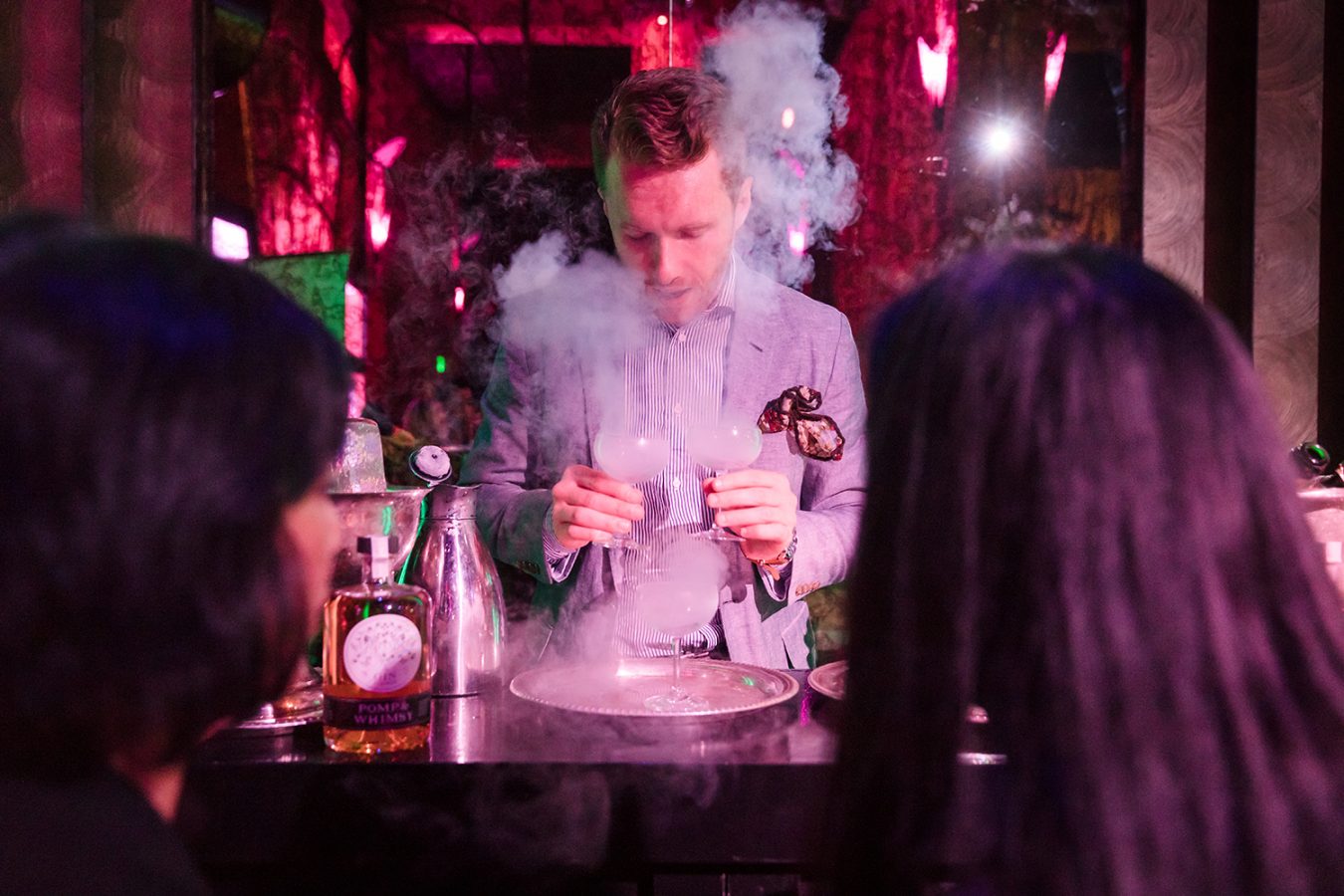
Do we need more made-for-Instagram museums where a backdrop of floating glasses of rosé or scoops of ice cream is designed to garner likes and reposts? No. But what about one that brings to light the gender bias and seeks to close the wage gap? One that elevates women into leadership roles and crushes objectification? That’s something we can get on board with.
“This generation of younger women understand that we should raise our voices; we should speak out; we should demand change. And the way that we’ve always done that is in a very activist, in-the-streets kind of way. But why can’t it be while we’re out with other women, listening to music, drinking cocktails, and having fun? Why can’t we also be outward with our activism in that moment?”
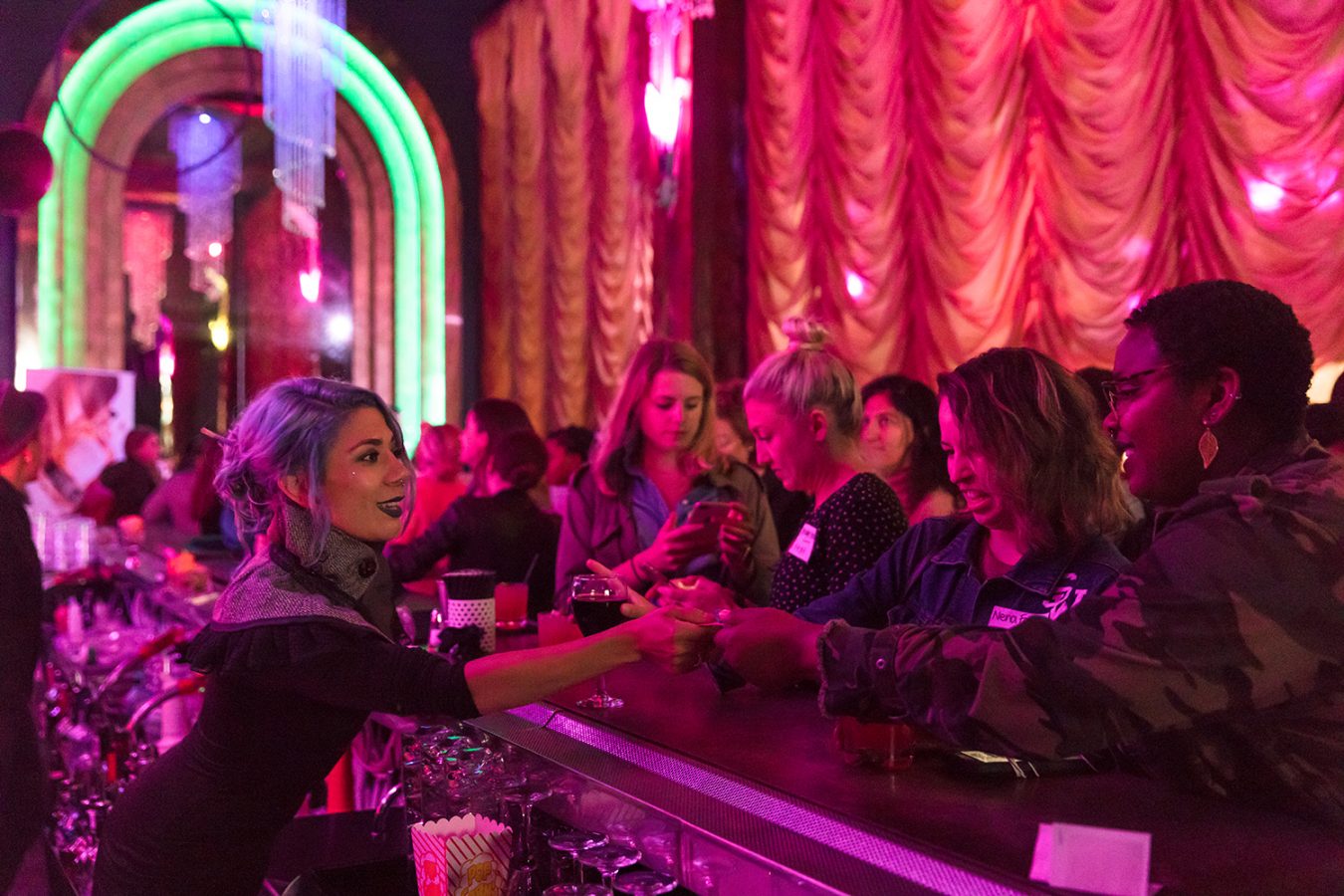 So go ahead: Grab a cocktail, take a selfie in a ball pit full of mammary glands (but don’t, Jamie begs, call it a “Tit Pit”), and help Eleven spread the word about female equality. We deserve it.
So go ahead: Grab a cocktail, take a selfie in a ball pit full of mammary glands (but don’t, Jamie begs, call it a “Tit Pit”), and help Eleven spread the word about female equality. We deserve it.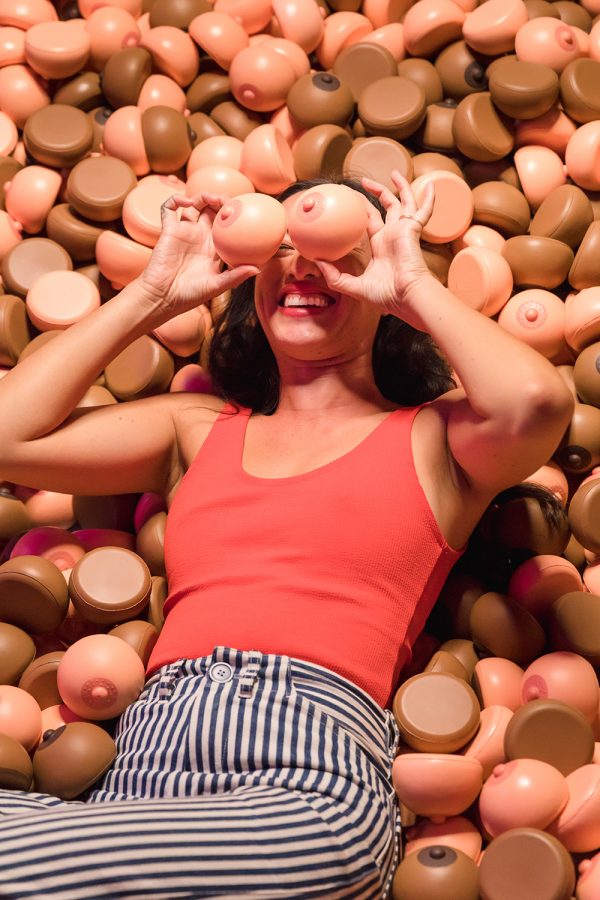
Want more? Follow Lady Boss to keep up with their latest events and happenings.
